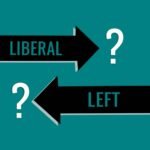To what extent should Tim Farron’s socially conservative, Christian beliefs matter? Should politics be defined by actions, regardless of private beliefs?
“To be a political leader – especially of a progressive, liberal party in 2017 – and to live as a committed Christian, to hold faithfully to the Bible’s teaching, has felt impossible for me.” Thus was Tim Farron’s claim when he resigned leadership of the British Liberal Democrat party on the 14th of June this year. Given that his party had secured just 7% of votes in the national election the week before, Farron’s exit may seem like an event strictly for anglophile political obsessives. Yet the modern Liberal Democrats are the direct descendants of the British Liberals, the party of thinkers in the calibre of John Stuart Mill and L.T. Hobhouse, who defined the very concept of liberty of thought. If a committed believer feels his faith is now incompatible with its leadership then surely that is worthy of further reflection.
Farron’s emphasis on his bruised Christian conscience may have served to obscure less high-minded reasons for his departure, notably the Liberal Democrat’s underwhelming electoral performance. Nonetheless, it was on faith that his resignation statements converged: “I have found myself torn between living as a faithful Christian and serving as a political leader”. Farron has always seemed happy to be described as an evangelical, adhering to a Bible-focused version of Christianity. He never courted an evangelical or Christian vote in a way that the Conservatives more obviously have, but he has been overt in declaring his faith in public and in emphasising the transcendent importance he attaches to Christianity for not only himself but also for others. In 2013 he told a National Parliamentary Prayer Breakfast that Christianity is “the most important thing in the universe bar nothing … There is no middle way … if it’s true: everything – everything – changes”.

After Farron became Liberal Democrat leader in 2015, his faith, or more specifically the extent to which his views on social questions reflected that faith, came under increased scrutiny. His views on abortion have been an area of challenge, but was his attitude regarding LGBT rights, or, more fundamentally, the morality of gay sex, which has produced most heat. In an early interview on Channel 4 News, Farron was asked if he believed homosexuality was a sin. His evasive, if theologically accurate, answer that we are all sinners led to the question being repeated across the following two years, with the Lib Dem leader mixing further evasion with occasional denial that he held any such view.
Indeed, Farron could reasonably be charged with facing different ways for different audiences. Just ahead of the 2017 election he declared himself ‘pro-choice’ to the Guardian, but a commonsensical interpretation of that term is hard to square with other statements – including those to Christian media – and with his voting record, where he supported tighter time limits in British abortion law. Even if sometimes honoured in the breach, however, his central defence when charged with holding socially conservative, faith-inspired beliefs was always to assert a fundamental liberal and secularist principle: that “what one believes in one’s personal private faith is just that” and that the political arena should be defined by public statements and, above all, actions. It’s a statement he has made with undeniable clarity and vigour.
The hyperventilating mess of modern political debate makes it difficult to tell if Farron’s accusers have suggested that it is indeed his record of action, not his private thoughts, that is the problem, or whether they are rejecting this principle of separation outright. Some, certainly, have taken the later line. During the election campaign a lot of coverage was given to Farron’s appearance on a radio phone-in where a caller pressed him on his “attitude”: “I’d like to know why you feel like this” quizzed Brian, “I want to know why you think homosexuality is a sin”. Farron’s succinct counter –
“A person who is the leader of a political party, it’s their job, and [I say this as] someone who’s passionate about LGBT+ rights, [to] prove it by your actions not by your words and my actions are absolutely 100% about defending LGBT+ rights”
– got very limited sympathy when this encounter was written-up in the liberal press. Similarly, following Farron’s resignation, the former Lib Dem MP David Laws said, “You cannot be a leader of a liberal party while holding fundamentally illiberal and prejudiced views … [the party] has been undermined by the outdated opinions and views which Tim clearly holds”. As Farron had been emphatic in his support for LGBT rights, and this was broadly backed by his voting record, Laws’ statement about noxious “opinions and views” could only refer to Farron’s private religious beliefs – unstated but inferable – about sexual morality, about his god’s judgement of sexual conduct.
Two points are worth clearing up here. First, it is possible that David Laws believed Farron’s positive statements to be a ruse and that, in power, his repressive theocratic instincts would stand revealed. As Laws is not a fool, however, this seems unlikely. Second, this is an issue about belief and how religion works in the political sphere. It can’t be wished away by claiming that a real Christian wouldn’t hold such intolerant views; a line of argument tried by Peter Ormerod in the Guardian. It is beyond question that swathes of Christians and Christian churches see gay sex as a sin and find a Biblical basis for that.
“Two things are troubling here: a lack of recognition that Christianity and progressive politics can work together beautifully; and he implies there is only one way to live as a committed Christian, and that way is defined by attitudes to sexuality.” – Peter Ormerod, The Guardian, 2017
I have, I should say, limited sympathy for Farron. Whilst he has articulated a broad position about faith and politics that would be welcome from other Christian politicians in the UK and elsewhere (“the danger is sometimes that as a Christian in politics you think your job is to impose your morality on other people. It absolutely isn’t”), the strong argument that he has tried to make for politics as a secular space has been undermined by his own insistence on the priority of his faith and by using the authority of his political position to evangelise. Moreover, the classic assertions of liberal principles accept that there is no absolute freedom in practising a religion where this – as it inevitably does – makes claims on the behaviour of others. In his 1911 master work Liberalism, Hobhouse sets out how a liberal approach to freedom can best balance religion’s private and public faces in a world of imperfect compromises: expression and worship should be free, but if they violate the rights and freedoms of others they can be legitimately constrained.
Nonetheless, the most troubling aspect of this affair is undoubtedly the ease with which Farron’s ostensibly liberal critics have abandoned core liberal ideas about freedom of private belief and done so without any acknowledgement of the seriousness of this move or where it might lead (indeed, generally with a smirk of self-righteousness). Had they bothered, two arguments might have been made. The first, that the defence of freedom of belief is about protection from a tyrannous state. After all, Farron has simply lost his job, no-one is trying to imprison him for praying. But the classic liberal position is broader, acknowledging that not all power lies with Government. When Hobhouse says that freedom of thought “is negated by any inquisition which compels a man to disclose opinions, and penalises him if they are not such as to suit the inquisitor”, he seems to be making an accurate prediction of Farron’s predicament. A second approach would be to note that Farron is not merely a private citizen. In this case it would be argued that when he sought public office he surrendered his right to claim that his beliefs are private. This has some force, but thinking through the consequences should make us wary.
Farron’s theological views may have made us uncomfortable, but in an increasingly polarised context there was also value in an evangelical Christian advocating progressive positions on LGBT civil rights, regardless of whether he also believed gays, along with abortionists and atheists, would eventually stand guilty before their maker. The implication of statements by David Laws and others is that evangelical Christian politicians should find a home on the right, and do so because of their theology, however strongly they are committed to liberal action in the civic sphere. This might make us feel better, but for practical politics it’s a disaster. Moreover, if we assert that by pursuing party leadership Farron had surrendered any right to private beliefs, we are dumbing down the very concept of a political party. Rather than being a coalition for achieving power and enacting the shared programme of diverse interests, a party becomes instead a way for its supporters to express a singular identity- a brand that should not be complicated by its leader’s theological peccadilloes.
Farron failed to live up to his own secular principle and was inadequate, despite his best efforts, in explaining that principle to the public. However his critics seem barely to have understood what was at stake and, in taking down the man for his sins against progressive values, made no effort to protect the idea of freedom of belief that Farron had utilised in his own defence. This principle is worth restating, and restating in a way that emphasises the classic liberal principles behind both LGBT rights and freedom of belief: liberalism means getting out of both what we do in bed and what goes on in our heads.








Posted by Martin Oxford
29 June, 2017 at 1:05 pm
You missed out the question about the wisdom of having religious faith in the first place. I don't know how we can have meaningful discussion when one side's arguments are aided by ancient holy books or whatever. And if they apply logic (as most do for most subjects for most of the time) then religion is irrelevant, not applicable anywhere at any time. But if Farron still clings to a religious belief equivalent to fairies at the bottom of the garden and he chose the fairies then I am glad to see him go.
Couldn't have put it better myself Martin. Nick Clegg lost the one audience who should have been the Lib Dems natural future voters, by lying to a whole generation of students. Tim Farron then lost the rest by professing his own irrationality. Faith is irrational by definition and should have no place in politics, government or in any public sphere. Secularism is the safe home for all - including liberals and the irrational!